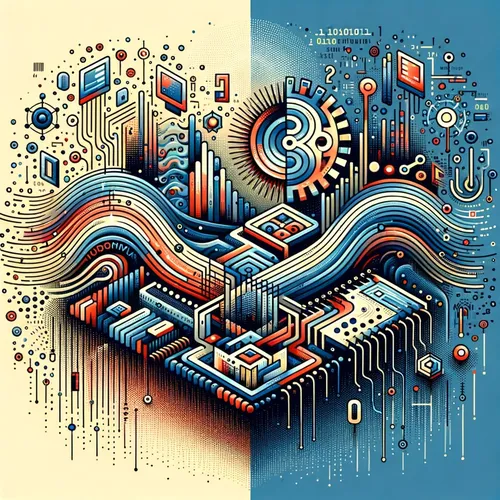Quantum Leaps: Certified Randomness, Kookaburra Chip, and QuantumScript Simplify the Future
- Author
- Quiet. Please
- Published
- Tue 08 Apr 2025
- Episode Link
- https://www.spreaker.com/episode/quantum-leaps-certified-randomness-kookaburra-chip-and-quantumscript-simplify-the-future--65443505
This is your Quantum Tech Updates podcast.
Picture this: I’m standing in a pristine quantum lab, the hum of cryogenic coolers enveloping the room, as a 56-qubit quantum computer crackles to life. It’s April 2025, and we’ve officially crossed a new threshold—certified randomness has been experimentally demonstrated, a breakthrough poised to redefine cryptography, fairness in algorithms, and many aspects of data privacy. This milestone, spearheaded by Quantinuum, JPMorganChase, and other collaborators, is a tangible leap in leveraging quantum power for practical applications. But what does this mean? And how can we bring these quantum complexities into focus for everyday relevance?
Let me try this: imagine the age-old challenge of shuffling a deck of cards. You might shuffle, split, and reshuffle, but classical computers, like card counters, can often reconstruct the underlying sequence using predictable patterns. Quantum computing, however, is like using a quantum tornado to shuffle—absolutely no pattern emerges, and certified randomness ensures there’s proof of its total unpredictability. This advancement achieved with 56 high-fidelity ion-trapped qubits demonstrates something classical supercomputers could never replicate. It’s one of those rare tangible moments in our field that underscores how quantum is moving from theoretical wonder to impactful reality.
Speaking of milestones, let’s pivot to the big news this week: IBM is on track to release its eagerly anticipated Kookaburra processor later this year. This chip is set to connect three quantum modules, creating a system of over 4,000 qubits. If qubits were like musical notes, think of Kookaburra as an orchestra capable of playing symphonies of computational possibilities. By interlinking processors, IBM is addressing one of quantum hardware’s most significant hurdles: scalability. With scalability comes the promise of modeling systems with massive variables, such as simulating climate change in ways we’ve never seen before.
Now, let’s take a step back to demystify quantum computing for anyone new to the field. At its heart, a quantum bit—or qubit—is uniquely powerful because it can exist in a state of 0, 1, or any combination of both, thanks to a principle called superposition. This is radically different from classical bits, which are definitively either 0 or 1. To illustrate, think of a classic computer as a light switch—you flick it on or off—but a quantum computer is like a dimmer switch, capable of holding all brightness levels simultaneously. This enables computation on massive scales, solving problems like drug discovery or logistics optimization in ways classical computers can’t.
What’s particularly thrilling is seeing quantum computing cross into mainstream accessibility. Just last week, we saw the announcement of QuantumScript, a revolutionary quantum programming language designed to make coding on quantum systems as intuitive as writing Python. This development is a giant leap for quantum education and democratization, eliminating the steep learning curve traditionally associated with quantum mechanics. With QuantumScript, developers can skip the intricate web of quantum gates and focus on crafting elegant, optimized algorithms. This shift is akin to moving from needing a pilot’s license to fly a plane to simply booking a ticket and enjoying the view.
Now, let’s pivot to another exciting quantum frontier: error correction. One of quantum computing’s enduring challenges is the fragility of qubits—they’re sensitive to "noise," meaning any environmental fluctuation can disrupt their state. Researchers are now leveraging logical qubits, which group multiple physical qubits to counteract errors. This week, we’ve seen exciting advances in noise-aware software optimizations, which promise to extend qubits' coherence times and, ultimately, improve computational accuracy. It’s the quantum equivalent...
